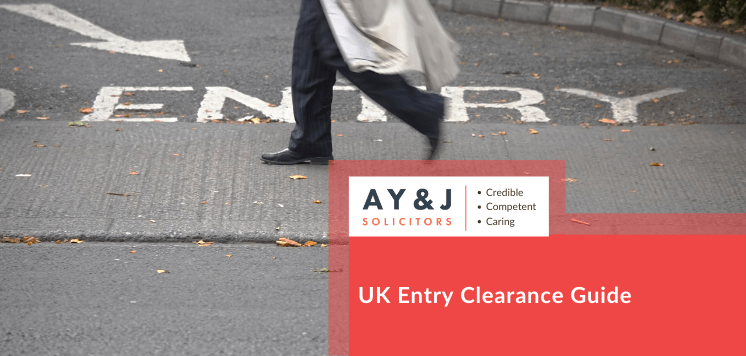In a recent announcement by the UK Home Office on 14 June 2021, the temporary COVID-19 Right to Work checks will end on 31 August 2021. However, beginning from 1 September 2021, all the employers will resume face-to-face and physical document checks for every employee they hire as set out in legislation and Right to work checks guidance.
This blog has covered all that you need to know about right to work checks, ongoing temporary work checks, and changes after 31 August 2021.
What is Right to work checks and why preventing illegal working is essential.
A Right to work check is a process that all employers must initiate to ascertain whether their prospective employees have the Right to work in the UK.
Illegal working can socially and economically impact the UK. It destabilizes the businesses and workers that are staying within the law, exploit and put to risk those who are migrating workers.
Any dishonest opportunities for illegal working in the UK will attract more illegal workers. The backbone of the nation will be put at risk; hence, the Home Office has grown increasingly strict when it comes to illegal work.
There have been many occasions when the Home office has found illegal workers being migrated unlawfully, potentially risking the health and safety regulations. The Home Office has now been increasingly promoting awareness toward preventing illegal working and is taking robust actions to deal with those unlawfully working in the UK and take stricter measures to prosecute them or put heavy penalties and even remove them from the UK. You could be charged as much as £20,000 for each illegal worker or face criminal prosecution.
Right to work checks during the COVID-19 pandemic
The employer will continue to hold temporary Right to work checks until 31 August 2021 under the coronavirus adjusted checking measures.
The following procedure continues:
- All the checks to be conducted over video call
- The job applicants and already existing workers can send scanned documents or photos of documents for checks using email or a mobile app instead of sending original documents.
- The employers must use the Employer Checking Service if a prospective or existing employee cannot provide any official documents.
Do you have a way to calculate the sponsor licence UK cost?
Yes! Use our calculator below to calculate your sponsor licence visa cost.
Please answer the questions and you will be able to calculate the approx cost for The sponsor licence –
End of temporary Right to work checks
As per the official notice issued by the UK Home Office, the face to face and physical document checks for every employee will resume from 1 September 2021.
These checks will be initiated either through
- Physical checking the prospective employee’s documents, or,
- Checking the prospective employee’s Right to work online
How to conduct the Right to work checks
By carrying out Right to work checks, you can ensure whether the employee is legally allowed to work for you or not. Right-to-work checks can be conducted in two ways: a manual document-based check or an online check. You may also have a ‘statutory excuse’ against paying a hefty fine if the person turns out to be an illegal worker.
If the Right to work checks for any employee is time-limited, then you will have to conduct a few repeated checks before it is due to come to an end.
➢ Conducting manual-document checks
The manual document is conducted in three steps. You need to complete all three steps before employment commences to ensure you have conducted a check in the prescribed manner to ascertain a statutory excuse.
Step 1: Obtain
You must obtain all the acceptable documents from either List A or List B in the Right to Work Checklist.
Step 2: Checking
You must check that the documents are genuine and the person presenting them is the prospective employee who is a rightful holder and eligible to work for the job you are offering. The following are to be checked as mentioned in the employer’s guidance for Right to work checks:
- Checking the photographs are consistent with the appearance of the person; and
- Checking any dates of birth mentioned are consistent across documents and that you are satisfied that these match-up with the appearance of the person; and
- Checking that the expiry dates of any limited leave to enter or remain in the UK have not passed; and
- Checking any UK government endorsements (Biometric Residence Permits, stamps, stickers, visas) to see if the person is eligible to do, or can continue to do, the type of work you are offering; and
- Satisfying yourself that the documents are genuine, have not been forged with and belong to the holder; and
- Asking for a further document in explanation if you are given two documents that have different names. The further document could, for example, be a marriage certificate or a divorce decree absolute, a deed poll or statutory declaration
Step 3: Making copies
The employer must make a clear copy of every document in a format that cannot manually be altered and stored securely, either electronically or in hardcopy. You must also retain a secure record of the date on which you did the check. Simply writing a date on the copy document does not, in itself, confirm the actual date when the check was done. Therefore, you must also record the date on which you conducted the check.
You must copy and retain copies of passports or other travel documents as:
- any page with the document expiry date, the holder’s nationality, date of birth, signature, leave expiry date, biometric details,
- photograph and any page containing information indicating the holder has permission to enter or remain in the UK (visa or entry stamp) and undertake the work in question
- the document in full, including both sides of a Biometric Residence Permit, Application Registration Card, and a Residence Card
All copies of documents taken should be kept securely for the duration of the worker’s employment and for further two years afterwards. The copy must later be securely destroyed.
➢ Conducting the online check
The online Right to work check will provide you with a statutory excuse against a civil penalty in the light of illegal working involving the subject of the check. You can do the online check by logging into the Government’s website View a job applicant’s Right to work details
Conducting Right to work checks under all circumstances may be very difficult as many employees would not have an immigration status that can be checked online. The online right to work checking service sets out what information you will need. In circumstances in which an online check is not possible, you should conduct the manual check.
Currently, the online service supports checks in respect of those who hold:
- a biometric residence card
- a biometric residence permit
- status issued under the EU Settlement Scheme
- status issued under the points-based immigration system
- British National Overseas (BNO) visa
- Frontier workers permit
As an employer, you should give employees every opportunity to demonstrate their Right to work. It would help if you were not discriminating based on whether or not an individual is able and willing to demonstrate their Right to work using the online service. Doing so may result in you breaching UK law.
Conclusion: Conducting the checks, whether manual or online, is the employer’s responsibility. Failure to do so could result in disciplinary and enforcement action by the UK Home Office with the prosecution, civil penalties, or both, charged on you for breaching the law.
The blog covers all aspects of Right to work checks, manual and online, how it is essential to ensure and encourage legal working in the UK, how from 1 September 2021, it is indispensable to resume face to face checks and strictly following the guidelines for Right to work checks.








